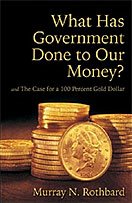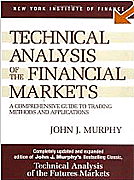Von Mises: The Gold Problem
The Gold Problem
By Ludwig von Mises
Why have a monetary system based on gold? Because, as conditions are today and for the time that can be foreseen today, the gold standard alone makes the determination of money's purchasing power independent of the ambitions and machinations of governments, of dictators, of political parties, and of pressure groups. The gold standard alone is what the nineteenth-century freedom-loving leaders (who championed representative government, civil liberties, and prosperity for all) called "sound money."
The eminence and usefulness of the gold standard consists in the fact that it makes the supply of money depend on the profitability of mining gold, and thus checks large-scale inflationary ventures on the part of governments.
The gold standard did not fail. Governments deliberately sabotaged it, and still go on sabotaging it. But no government is powerful enough to destroy the gold standard so long as the market economy is not entirely suppressed by the establishment of socialism in every part of the world.
To read the rest of this excellent Von Mises article on gold please, click HERE
Labels: gold, gold standard, money
















![[Most Recent Quotes from www.kitco.com] [Most Recent Quotes from www.kitco.com]](http://www.kitco.com/images/live/t24_au_en_usoz_6.gif)
![[Most Recent Quotes from www.kitco.com] [Most Recent Quotes from www.kitco.com]](http://www.kitco.com/images/live/au_go_0030_ny.gif)
![[Most Recent Quotes from www.kitco.com] [Most Recent Quotes from www.kitco.com]](http://www.kitco.com/images/live/au_go_0365_ny.gif)
![[Most Recent Quotes from www.kitco.com] [Most Recent Quotes from www.kitco.com]](http://kitconet.com/charts/metals/silver/t24_ag_en_usoz_4.gif)

















1 ΣΧΟΛΙΑ (COMMENTS):
So far unscathed, are commodities next to fall?
David Parkinson
Globe and Mail Update
A funny thing has happened on the way out of risky, volatile, speculative investments. Commodities have gotten off virtually unscathed. So far.
The benchmark for global commodity performance, the Reuters/Jefferies-CRB Index, closed at 320.18 yesterday, down a modest 1.8 per cent from its recent highs of two weeks ago, which coincided with the peaks in the equity markets. It is actually up almost 1 per cent since the equity selloff began in earnest last week.
Commodities are benefiting from the fact that the financial market tumult has not, to date, been an economic story. The economic fundamentals underpinning demand for raw materials and fuels remain relatively solid, especially outside the United States, while supplies of many commodities remain tight. That continues to lend support to commodity prices even as financial markets attempt to adjust for a non-economic threat, namely growing credit risks.
"Fundamentals do matter. It's really that simple," said Bart Melek, global commodity strategist at BMO Nesbitt Burns.
Of course, those credit risks do have the potential to spread to the broader economy, slowing spending and demand in a wide range of areas. But while equity investors seem nervous about such a possibility, commodity traders, it would seem, are a more confident breed.
Front and centre among those bold commodity players are the speculators - in other words, the hedge funds. That's right, the same hedge funds that are being severely rattled by the prospect of tightening credit conditions, since much of their investing binge in the past few years has been financed with low-cost debt.
The hedge fund speculators had been piling back into commodities in the past few weeks, according to commodity futures market data from the U.S. Commodity Futures Trading Commission. Speculative long positions in oil and copper were at record highs last week, while gold speculative longs had risen to two-month highs.
Have the credit-risk-fuelled market jitters changed that? We'll get a much better idea today, when the CFTC releases fresh weekly data on traders' long and short positions. Analysts believe the hedgies have begun unwinding some of their bloated speculative long positions, but so far they have been selective and measured, going after commodities where they can liquidate the easiest and realize the best profits.
That may be why gold, for example, retreated almost $25 (U.S.) last week. Copper has also been in retreat, not surprising given that the yen carry trade - a key pillar in the global liquidity flood that markets fear is beginning to dry up - has been a major financing tool for speculative purchases of copper and other base metals.
There could be a lot more downside where that came from. Richard Bernstein, chief investment strategist at Merrill Lynch in New York, estimates that speculation accounts for more than 30 per cent of the current price built into market-traded commodities. If the credit crunch deepens, and heavily leveraged hedge-fund speculators are forced to liquidate assets to meet their obligations and financing needs, that's a lot of fat that could melt away from commodities.
"Short-term investors in other overvalued speculative assets, like commodities and emerging markets, should learn from the current mishaps in the debt markets. Supposedly liquid securities can rapidly become illiquid," Mr. Bernstein warned in a note to clients this week.
Martin King, oil commodity analyst at FirstEnergy Capital Corp. in Calgary, said oil could be in for an unwinding of speculative long positions anyway, in the wake of a sharp runup in fund buying since the end of May. He said crude prices could easily pull back $10 (U.S.) a barrel in the next two months on "normal seasonal unwinding." He suggested that additional selling linked to the credit market fears might deepen that correction to $15.
Which is not to say that the bull market for commodities is on its deathbed; the fundamentals are too strong for that. Still, a deepening credit crunch could well spell the end to the rampant speculation in commodities that has proven so profitable for hedge funds and, indeed, the broader investment community.
"True long-term investors should continue restructuring portfolios to accentuate undervalued higher-quality assets at the expense of speculative lower-quality assets," Mr. Bernstein said. "The liquidity driven, speculative tone to the financial markets the past five years is unlikely to be the tone of the next five years."
Post a Comment
<< Home